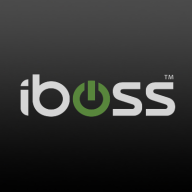


Cisco Umbrella and Symantec Proxy are strong contenders in network security. User feedback indicates Cisco Umbrella's flexibility and cloud integration may edge out Symantec Proxy's advanced threat detection.
Features: Cisco Umbrella provides DNS-layer security, blocking ransomware and phishing threats. Its cloud-based setup allows quick deployment and integration with existing systems, while custom web filtering policies ensure compliance without additional hardware costs. Symantec Proxy offers meticulous web traffic control, blocking malicious sites with its reputation-based categorization and robust SSL decryption, ideal for detailed security analytics.
Room for Improvement: Cisco Umbrella could offer more competitive pricing, improve real-time reporting, and expand malware classification capabilities. Enhancements in IPv6 support and integration options are also desirable. Symantec Proxy needs simpler deployment processes, better SIM dashboard integration, and more comprehensive support from Broadcom.
Ease of Deployment and Customer Service: Cisco Umbrella's cloud-centric deployment is hassle-free, with strong technical support ideal for rapid scalability. Symantec Proxy, while reliable, can be challenging to deploy due to its predominantly on-premises setup, with mixed feedback on customer service.
Pricing and ROI: Cisco Umbrella is seen as cost-effective due to its robust features reducing hardware investments. However, its pricing concerns arise in regions with volatile currency rates. Symantec Proxy, perceived as pricey, justifies its cost with comprehensive security suites that reduce the need for multiple solutions, ensuring significant ROI through enhanced security posture.
| Product | Market Share (%) |
|---|---|
| Cisco Umbrella | 15.8% |
| iboss | 2.4% |
| Symantec Proxy | 1.9% |
| Other | 79.9% |


| Company Size | Count |
|---|---|
| Small Business | 6 |
| Midsize Enterprise | 6 |
| Large Enterprise | 5 |
| Company Size | Count |
|---|---|
| Small Business | 49 |
| Midsize Enterprise | 30 |
| Large Enterprise | 51 |
| Company Size | Count |
|---|---|
| Small Business | 6 |
| Midsize Enterprise | 4 |
| Large Enterprise | 12 |
Iboss offers a comprehensive cloud-based security platform valued for its scalability and autonomous features, ensuring robust security with easy deployment and management capabilities.
Renowned for its robust security architecture, Iboss integrates seamlessly within diverse networks, delivering efficient granular filtering and advanced content categorization. Its single pane of glass console provides ease of management, allowing rapid scalability suitable for rapidly deploying environments. Operates in BYOD setups due to inline filtering without device installation. Integration with cloud-based applications enhances user control, and features like SASE, SSL inspection, and ChatGPT risk protection stand as highlights. Despite its strengths, users have pointed out areas for enhancement like direct navigation in reports, SSL decryption, and better cloud integration while having room to improve data loss prevention.
What are the most important features of Iboss?The usage of Iboss spans educational institutions, specifically K-12, to enforce internet policies, protect data, and support remote work environments. It provides web filtering and security frameworks to ensure safe browsing. Its platform-as-a-service model offers flexibility for both cloud-based and on-premises requirements, integrating seamlessly to deliver enhanced security features suitable for various deployment needs including zero trust, CASB, and network security for work-from-home setups.
Cisco Umbrella provides fast-deploying DNS-layer security with powerful threat protection capabilities. Trusted by over 30,000 entities, it ranks highly in DNS security and effectively supports secure remote work environments.
Cisco Umbrella offers comprehensive DNS security, web filtering, and ease of use, enhancing network security through robust threat protection and malware prevention. It processes over 600 billion requests daily, making it a leader in its field. The seamless integration with existing infrastructures and cloud-based nature makes it suitable for remote and distributed work environments, ensuring consistent security throughout. Management is streamlined with a single-pane interface that simplifies administration, while in-depth reporting capabilities provide valuable insights for continuous monitoring.
What are the key features of Cisco Umbrella?Cisco Umbrella is widely adopted in industries requiring advanced DNS-level security to counteract malware, phishing, and cyber threats. Its ability to monitor and protect remote and roaming employees makes it an attractive option for sectors highly dependent on cloud services. By managing DNS queries and blocking harmful sites, Cisco Umbrella enhances cybersecurity across networks, providing an added layer of protection for businesses worldwide.
Symantec Proxy is designed to provide web security, web access control, and secure web gateway functionalities for organizations. It helps protect against web-based threats, enforce web usage policies, and provide secure access to internet resources.
Symantec Proxy Benefits:
Symantec Proxy Features:
Reviews from Real Users
Below are some reviews and helpful feedback written by Symantec Proxy users.
PeerSpot user, Consultant at a financial services firm, says that Symantec Proxy "...enables us to manage bandwidth for users based on their privilege levels. For example, if a user wants to use a certain application or resource, we can provide access based on their privileges."
PeerSpot user, General Manager & founder at a engineering company, writes that Symantec Proxy has "A complex deployment, no proper user reporting, and a proxy component that works."
Muhammad Salahuddin, Unit Head - Network and Security Solutions at FPM Solutions, states that Symantec Proxy has "Good URL filtering but is expensive and doesn't have good technical support services."
We monitor all Secure Web Gateways (SWG) reviews to prevent fraudulent reviews and keep review quality high. We do not post reviews by company employees or direct competitors. We validate each review for authenticity via cross-reference with LinkedIn, and personal follow-up with the reviewer when necessary.